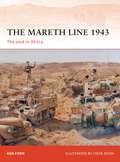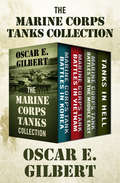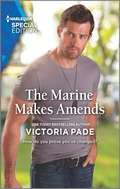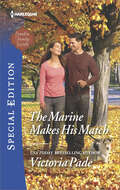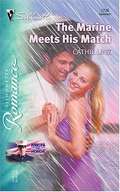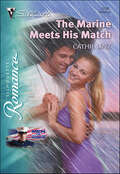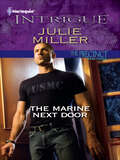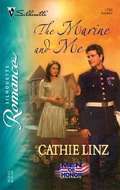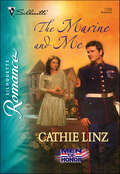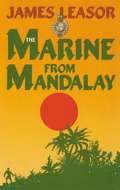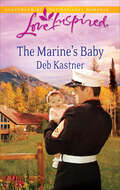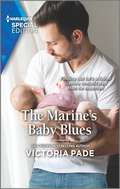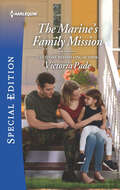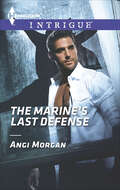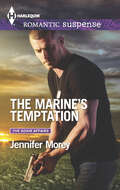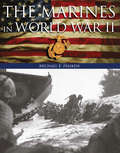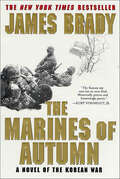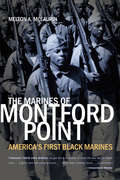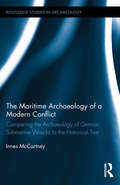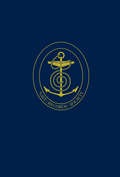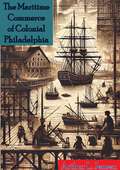- Table View
- List View
The Mareth Line 1943
by Steve Noon Ken FordThe battle of El Alamein in World War II saw the shattering of Germany's hopes for victory in North Africa. From this point on the end was inevitable, as Rommel's forces began the long retreat that was to end in Tunisia in May 1943 when, hemmed in by British and American forces on all sides, over 250,000 Axis soldiers filed into prisoner of war camps, a number comparable to those captured at Stalingrad.In the six months that passed between Alamein and the final surrender there was much hard fighting, as the defeated German and Italian Panzer Army sought to hold off the encroaching Eighth Army in a series of defensive positions across the Western Desert. Rommel, his health suffering from the strains of command, fought a number of major actions during this campaign - at El Agheila, Mersa el Brega, Buerat and Medenine - before his forces settled into the pre-war French defensive position the Mareth Line. All the way he was pursued by an increasingly confident Eighth Army under the command of General Montgomery, but never was Montgomery able to outflank the retreating German and Italian forces decisively, and Rommel was even able to divert forces to inflict a sharp defeat on the newly arrived US forces at Kasserine Pass in February 1943. This was one of Rommel's last acts in the Desert War as his health problems forced his return to Germany shortly afterwards. The stage was now set for the last great battle of the Desert War as the veteran formations of the British Eighth Army took on their foes in the Afrikakorps for one last time in the major set-piece battle for the Mareth Line.From the Trade Paperback edition.
The Marine Corps Tanks Collection
by Oscar E. Gilbert&“Together these books provide the definitive history of the USMC&’s tank forces . . . Very highly recommended&” (Military Modelcraft International). Marine Corps Tank Battles in Korea: A detailed and gripping account of the little-known Marine tank engagements during the Korean War, from the valiant defense at Pusan and the bitter battles of the Chosin Reservoir to the bloody stalemate along the Jamestown Line. Oscar E. Gilbert unfolds the unique role played by tanks in the destruction of the ill-fated Task Force Drysdale, how Marine armor was a key factor in the defense of Hagaru, and how a lone tank made it to Yudamni and then led the breakout across the high Toktong Pass. Marine Corps Tank Battles in Vietnam: In 1965 the large, loud, and highly visible tanks of 3rd Platoon, B Company, 3rd Tank Battalion landed across a beach near Da Nang, drawing unwelcome attention to America&’s first, almost covert, commitment of ground troops in South Vietnam. Marine Corps tankers sought out the enemy in the sand dunes, jungles, mountains, paddy fields, tiny villages, and ancient cities of Vietnam, dealing with guerrilla ambushes from the Viet Cong and the long-range artillery capability of the North Vietnamese Army. Marine Corps Tank Battles in the Middle East: In America&’s longest continual conflict, armored Marines became entangled in guerrilla war amid the broiling deserts, ancient cities, and rich farmlands of Iraq, and in the high, bleak wastes of Afghanistan. Fighting a fanatical foe who brutalized civilians, planted sophisticated roadside bombs, and seized control of entire cities, the Marine Corps tankers cleared roads, escorted convoys, conducted endless sweep operations to locate and destroy insurgent strongholds, protected voting sites for free elections, and recaptured and rebuilt urban centers, even adding a new trick to their repertoire: long-range surveillance. Tanks in Hell: On November 20, 1943, the 2nd Marine Division launched the first amphibious assault of the Pacific War, directly into the teeth of powerful Japanese defenses on Tarawa. In that blood-soaked invasion, a single company of Sherman tanks, of which only two survived, played a pivotal role in turning the tide from looming disaster to legendary victory.
The Marine Finds His Family
by Angel SmitsHis most important mission US marine DJ Hawkins is on a mission to locate his son's mother and discover why she abandoned the boy. To DJ's surprise, Tammie Easton is easy to locate, and it soon becomes clear she has her reasons for staying away. But can he protect her from her past? Determined to ignore the surge of renewed attraction, he vows to help her. Unraveling her life is intense and DJ respects the woman she's become...even as he catches glimpses of the girl he fell in love with years ago. Now, DJ will do anything to keep Tammie safe for his son...and himself.
The Marine Makes Amends: The Greek's Secret Heir (secrets Of A Billionaire) / The Marine Makes Amends (The Camdens of Montana #1)
by Victoria Pade“How do you prove you’ve changed?” is the question asked in the first book of USA TODAY bestselling author Victoria Pade’s new miniseries!Micah Camden ruined Lexie Parker’s life.That might have been years ago, but now that she’s back in Merritt to care for her grandmother—who was hurt due to Micah’s oversight—she has no plans to forgive him. But the former marine knows that he made mistakes back then and hopes to make amends with Lexie, if only so they can both move on from the past. Everyone says Micah’s changed, but it’s going to take more than someone’s word to convince her…From Harlequin Special Edition: Believe in love. Overcome obstacles. Find happiness.The Camdens of MontanaBook 1: The Marine Makes Amends
The Marine Makes His Match: Just A Little Bit Married The Marine Makes His Match A Family Under The Stars (Camden Family Secrets #1)
by Victoria PadeA military man? Swipe left! But dealbreakers go out the window when she meets the Marine of her dreams. From the USA Today–bestselling author.When it comes to relationships, Kinsey Madison has one rule: no military men. So when she starts a new job nursing Sutter Knightlinger’s mother, the healthcare worker must remind herself that she wants life with a man who comes home at the end of every day. And that means every delicious inch of the hunky Marine is off-limits . . . right? Sutter is a career Marine. And for him, that comes with a strict no-marriage policy. But pretty Kinsey can’t be ignored. The nurse works wonders with his mom and his wounded shoulder. Soon Sutter will rejoin his unit in Afghanistan . . . except he can’t stop thinking about a life with Kinsey. Could it be that his heart doesn’t belong to the corps anymore?
The Marine Meets His Match
by Cathie LinzHe'd faced enemy fire with more courage than his general's daughter's advances - and U.S. Marine Captain Rad Kozlowski wasn't afraid to admit he was in real danger. The only way to evade her was to find a fake bride. And he knew just the beautiful blonde to play the part.... Experience had taught brainy bookseller Serena Anderson to steer clear of military men. But when Rad offered her a too-good-to-be-true deal in exchange for "marriage," Serena agreed to a little pretence. After all, since neither wanted to settle down, the only thing at risk was a few kisses - and then a few more.... Miniseries: Men of Honor
The Marine Meets His Match (Men of Honor)
by Cathie LinzHe'd faced enemy fire with more courage than his general's daughter's advances-and U.S. Marine Captain Rad Kozlowski wasn't afraid to admit he was in real danger. The only way to evade her was to find a fake bride. And he knew just the beautiful blonde to play the part....Experience had taught brainy bookseller Serena Anderson to steer clear of military men. But when Rad offered her a too-good-to-be-true deal in exchange for "marriage," Serena agreed to a little pretence. After all, since neither wanted to settle down, the only thing at risk was a few kisses-and then a few more...
The Marine Next Door: Task Force - Book 1 (The Precinct: Task Force #1)
by Julie MillerA female cop finds love and healing with a wounded marine who protects her from a stalker in this romantic suspense from a USA Today–bestselling author.Maggie Wheeler never stopped looking over her shoulder. It was a habit she’d learned from being a cop—and from a devastating event in her past. So when John Murdock moved in next door, Maggie didn’t know what to make of the sexy marine. But once her son formed a bond with the mysterious stranger, Maggie knew that past might not remain hidden much longer.With his unwavering sense of duty, John would never let a call for help go unanswered. Especially from the beautiful wounded warrior who refused to give up her secrets. Although she likely knew more about who was after her than she’d ever let on, John vowed to protect those in need. Only then could he find peace, maybe even a door away.
The Marine and Me
by Cathie Linz"How on earth had an intrepid U.S. Marine just gotten maneuvered into dating the librarian next door? Mark it down to a sense of duty but for Steve Kozlowski, meeting Chloe Johnson was like walking over a land mine. For beneath her frumpy exterior was a spirited, sexy woman who could definitely use a lot more excitement in her life. And this die-hard bachelor was just the man to provide it. At least he was until he discovered how much fun he was having with sweet, kissable Chloe. Had Steve's time-honored strategy for sidestepping a more lasting engagement just backfired? Silhouette Romance #1793 Miniseries: Men of Honor series"
The Marine and Me (Men of Honor)
by Cathie LinzHow on earth had an intrepid U.S. Marine just gotten maneuvered into dating the librarian next door? Mark it down to a sense of duty but for Steve Kozlowski, meeting Chloe Johnson was like walking over a land mine. For beneath her frumpy exterior was a spirited, sexy woman who could definitely use a lot more excitement in her life. And this die-hard bachelor was just the man to provide it. At least he was until he discovered how much fun he was having with sweet, kissable Chloe. Had Steve's time-honored strategy for sidestepping a more lasting engagement just backfired?
The Marine from Mandalay
by James LeasorA real-life World War II tale of survival and perseverance against overwhelming odds from the international bestselling author of Passport to Oblivion. This is the true story of William Doyle, a Royal Marine wounded by shrapnel in Mandalay who undergoes a long solitary march through the whole of Burma to flee the Japanese. He then finds his way back through India and back to Britain to report for duty in Plymouth. On his way Doyle has many encounters and adventures and helps British and Indian refugees. He also has to overcome complete disbelief that a single man could walk out of Burma with nothing but his orders—to report to HQ—and his initiative.
The Marine's Baby
by Deb KastnerA marine and his adopted daughter give a day-care worker a reason to hope in this inspirational romance.The US Marine Corps made a man out of Nathan Morningway. But the orphaned baby girl left to him by his military buddy made him a father. A single father. With no training in diaper duty, let alone parenthood, Nathan heads home to Morningway Lodge—where he’s not exactly warmly welcomed by his family. But day-care worker Jessica Sabin helps care for little Gracie and teaches him how to be a daddy. That seems to make Jessica happy. So why does she look so sad sometimes? Nathan’s new mission: to find out—and make Jessica smile forever.
The Marine's Baby Blues (The Camdens of Montana #2)
by Victoria PadeUSA TODAY Bestselling AuthorThis marine is meeting his toughest mission yet…Tanner Camden knew hooking up with his ex was a bad idea. But he never thought he’d end up getting a call that he might be a father—or that his ex had died, leaving little Poppy in the care of her sister, Addie Markham. Addie may have always resented him—and his potential ability to take away the only family she has left doesn’t help—but with their shared goal of caring for Poppy, they’re willing to set aside their differences. Even if allowing their new feelings to bloom means both of them could get hurt when the paternity test results come back…From Harlequin Special Edition: Believe in love. Overcome obstacles. Find happiness.The Camdens of MontanaBook 1: The Marine Makes AmendsBook 2: The Marine’s Baby Blues
The Marine's Christmas Wish (The Brands of Montana #12)
by Joanna SimsShe&’s always been by his sideBut this year, he hopes to make her his Christmas bride! When his ex&’s mother ends up in the hospital, marine captain Noah Brand suddenly finds himself back in his hometown and looking after a little girl—who could be his daughter! The only person he trusts with this secret is his best friend, Dr. Shayna Wade. Shayna has always been the person he could count on, and this Christmas he needs her support more than ever. As the three of them make holiday magic together, can Noah convince his best friend that he finally sees her as the woman of his dreams?From Harlequin Special Edition: Believe in love. Overcome obstacles. Find happiness.The Brands of Montana Book 1: A Match Made in MontanaBook 2: High Country ChristmasBook 3: High Country BabyBook 4: Meet Me at the ChapelBook 5: Thankful for YouBook 6: A Wedding to RememberBook 7: A Bride for Liam BrandBook 8: High Country CowgirlBook 9: The Sergeant's Christmas MissionBook 10: Her Second ForeverBook 11: She Dreamed of a CowboyBook 12: The Marine's Christmas Wish
The Marine's Embrace
by Beth AndrewsIf only he had something to give her...besides love He's only looking for a room and a fresh start, but Zach finds more than he'd bargained for when he checks into Fay Lindemuth's bed-and-breakfast. The single mom intrigues him with her quiet strength and gentle beauty. He knows he should keep his distance from Fay and her young sons. Not only is she still hung up on her ex-husband, but as an ex-marine, Zach Castro has no idea what he can offer them. No matter how much he begins to feel for her...
The Marine's Family Mission (Camden Family Secrets #4)
by Victoria PadeOf all the people who had come to give condolences for her brother-in-law, it had to be him. A poignant romance from the USA Today–bestselling author.Four years ago, Declan Madison rescued Emmy Tate from a bombed Afghan school—and brutally dismissed their instant attraction. Now he’s back in her life, watchful of the two orphaned kids Emmy’s raising. Declan can’t bring back his best friend, but playing family with the beautiful photographer is the next best thing. If only they didn’t share so much past trauma . . .
The Marine's Last Defense: Wanted Unrepentant Cowboy The Marine's Last Defense
by Angi MorganA woman on the run finds love and protection with a marine-turned-cop in this romantic suspense from a USA Today–bestselling author.After escaping a killer, playing dead was the only way Sabrina Watkins could get out of Amarillo alive. Now she’s living in Dallas, where no one knows her true identity. Until homicide cop Jake Craig shows up.A half-frozen pup he finds at a crime scene brings Jake to Sabrina’s doorstep. Suddenly, the former marine is playing hero to a desperate woman on the run. Sworn to clear her name, Jake’s already falling for the stunning brunette with the amethyst eyes. Can he keep her safe and turn a rescue mission into a last chance at love?“Morgan launches the volley from the first pages so readers aren’t left wondering whodunit, but they’ll have to pay attention to the escalating action to keep up with the characters, who are in trouble from the get-go.” —RT Book Reviews
The Marine's Second Chance (The Camdens of Montana #4)
by Victoria PadeFirst love dies hardOr never at all… Dalton Camden and Marli Abbott&’s teenage love story was legendary…until a shared secret tragedy led Marli to flee town. Seventeen years later, the former marine is in no mood to forgive and forget, not even when Marli seeks his help for her brother. But buried feelings and unchanged attraction are impossible to ignore as they work towards a common goal. Can Marli convince Dalton their love is worth the fight when she reveals the truth of her departure? From Harlequin Special Edition: Believe in love. Overcome obstacles. Find happiness.The Camdens of Montana Book 1: The Marine Makes AmendsBook 2: The Marine's Baby BluesBook 3: The Major Gets it RightBook 4: The Marine's Second Chance
The Marine's Temptation (The Adair Affairs #2)
by Jennifer MoreyShocking discoveries rock the Adairs...and a determined librarian can't help falling for one of this dynasty's rugged heroes! It's true that money can't buy happiness. Librarian Georgia Mason has seen one wealthy Adair ruin her stepmother's life and swears she won't get involved with his son Carson. So what if he's a hot former special ops soldier who showers her with extravagant gifts? But he is the sexiest man she's ever met and it's hard to hate him for searching for his long-lost stepbrother, or tracking down the traitor behind his botched mission. And when Georgia faces life-threatening danger, Carson protects her, igniting their scorching passion. Maybe love of money isn't the root of all evil. Maybe there's more to Carson to trust, respect...and love.
The Marines in World War II
by Michael E. Haskew2016 will mark the 75th anniversary of the attack on Pearl Harbor that pushed the United States into World War II and sent thousands of US Marines to fight and die on tiny islands half a world away. Today, Iwo Jima, Okinawa, and Tarawa are household names that hold legendary status on the Marines’ roll of honor. But in 1941, the Marine Corps was a small expeditionary force with outdated equipment and an unproven new mission—amphibious assault. Michael E. Haskew's The Marines in World War II charts the rapid development of this famous fighting force from two brigades, totaling fewer than 20,000 servicemen, to two full corps with six divisions, five air wings, 21 battalions and as many as 475,000 Marines. In addition to chronicling the hard fought battles at places like Midway, Guadalcanal and Guam, the book also addresses the important role played by Navajo code talkers during combat, as well as the changes that took place within the Marines during the war, such as the admission of its first black members and the gradual desegregation of the Corps.
The Marines of Autumn: A Novel of the Korean War
by James BradyWar has been the inspiration of such great novels as The Red Badge of Courage and A Farewell to Arms, and daring feats of courage and tragic mistakes have been the foundation for such classic works. Now, for the first time ever, the Korean War has a novel that captures that courage and sacrifice. When Captain Thomas Verity, USMC, is called back to action, he must leave his Georgetown home, career, and young daughter and rush to Korea to monitor Chinese radio transmissions. At first acting in an advisory role, he is abruptly thrust into MacArthur's last daring and disastrous foray-the Chosin Reservoir campaign-and then its desperate retreat. Time magazine at the time recounted the retreat this way: "The running fight of the Marines...was a battle unparalleled in U.S. military history. It had some aspects of Bataan, some of Anzio, some of Dunkirk, some of Valley Forge, and some of 'the retreat of the 10,000' as described in Xenophon's Anabasis." The Marines of Autumn is a stunning, shattering novel of war illuminated only by courage, determination, and Marine Corps discipline. And by love: of soldier for soldier, of men and their women, and of a small girl in Georgetown, whose father promised she would dance with him on the bridges of Paris. A child Captain Tom Verity fears he may never see again. In The Marines of Autumn, James Brady captures our imagination and shocks us into a new understanding of war.
The Marines of Montford Point
by Melton A. MclaurinWith an executive order from President Franklin Roosevelt in 1941, the United States Marine Corps--the last all-white branch of the U.S. military--was forced to begin recruiting and enlisting African Americans. The first black recruits received basic training at the segregated Camp Montford Point, adjacent to Camp Lejeune, near Jacksonville, North Carolina. Between 1942 and 1949 (when the base was closed as a result of President Truman's 1948 order fully desegregating all military forces) more than 20,000 men trained at Montford Point, most of them going on to serve in the Pacific Theatre in World War II as members of support units. This book, in conjunction with the documentary film of the same name, tells the story of these Marines for the first time.Drawing from interviews with 60 veterans, The Marines of Montford Point relates the experiences of these pioneers in their own words. From their stories, we learn about their reasons for enlisting; their arrival at Montford Point and the training they received there; their lives in a segregated military and in the Jim Crow South; their experiences of combat and service in World War II, Korea, and Vietnam; and their legacy. The Marines speak with flashes of anger and humor, sometimes with sorrow, sometimes with great wisdom, and always with a pride fostered by incredible accomplishment in the face of adversity. This book serves to recognize and to honor the men who desegregated the Marine Corps and loyally served their country in three major wars.With an executive order from President Franklin Roosevelt in 1941, the United States Marine Corps--the last all-white branch of the U.S. military--was forced to begin recruiting and enlisting African Americans. The first black recruits received basic training at the segregated Camp Montford Point, adjacent to Camp Lejeune, near Jacksonville, North Carolina. This book, in conjunction with the documentary film of the same name, tells the story of these pioneering African American Marines. Drawing from interviews with 60 veterans, Melton McLaurin relates in the Marines' own words their reasons for enlisting; their arrival at Montford Point and the training they received there; their lives in a segregated military and in the Jim Crow South; their experiences of combat and service in World War II, Korea, and Vietnam; and their legacy. This book serves to recognize and to honor the men who desegregated the Marine Corps and loyally served their country in three major wars.-->
The Maritime Archaeology of a Modern Conflict: Comparing the Archaeology of German Submarine Wrecks to the Historical Text (Routledge Studies in Archaeology)
by Innes McCartneyOver the last 30 years, hydrographical marine surveys in the English Channel helped uncover the potential wreck sites of German submarines, or U-boats, sunk during the conflicts of World War I and World War II. Through a series of systemic dives, nautical archaeologist and historian Innes McCartney surveyed and recorded these wrecks, discovering that the distribution and number of wrecks conflicted with the published histories of U-boat losses. Of all the U-boat war losses in the Channel, McCartney found that some 41% were heretofore unaccounted for in the historical literature of World War I and World War II. This book reconciles these inaccuracies with the archaeological record by presenting case studies of a number of dives conducted in the English Channel. Using empirical evidence, this book investigates possible reasons historical inconsistencies persist and what Allied operational and intelligence-based processes caused them to occur in the first place. This book will be of interest to scholars and researchers in the fields of nautical archaeology and naval history, as well as wreck explorers.
The Maritime Blockade of Germany in the Great War: The Northern Patrol, 1914-1918 (Navy Records Society Publications #Vol. 145)
by John D. GraingerThe Tenth Cruiser Squadron of the Grand Fleet had the task of patrolling the seas between Scotland and Greenland to intercept enemy ships trying to escape into the ocean and merchant ships who could be carrying goods destined for Germany. This was a task of great political sensitivity, since almost all the ships intercepted were neutrals, and requiring great physical endurance from ships and men in the violent North Atlantic. The Maritime Blockade of Germany in the Great War is a comprehensive collection of the records of the Northern Patrol. It consists of regular reports of the admirals in command, to which are added other relevant official records, and more informal documents. There are the chatty letters of Captain Vivian and HMS Patia, the appalling experiences of young officers placed in barely seaworthy sailing ships to see that they went into port for examination, the patehtic 'mutiny' by a bored, distressed and underpaid black gang, the diary of Able Seaman Style, demonstrating the tedium of the patrol, and the self-satisfied diary of Dr Shaw. There are also the casualities: ships overwhelmed by storms, sunk by enemy action, torpedoed. The ships of the Patrol were perhaps the most constantly active Royal Navy vessels in the Great War, a barely acknowledged yet vital component in the eventual Allied victory
The Maritime Commerce of Colonial Philadelphia
by Arthur L. JensenArthur L. Jensen's The Maritime Commerce of Colonial Philadelphia offers a detailed exploration of the bustling maritime trade that transformed Philadelphia into one of the most important ports in colonial America. Through meticulous research and vivid storytelling, Jensen examines the economic, social, and political forces that shaped the city’s rise as a key center of commerce and trade in the 18th century.The book delves into the intricate web of trade routes connecting Philadelphia to the Caribbean, Europe, and other American colonies, showcasing the city’s role as a hub for goods such as tobacco, grain, and textiles. Jensen also highlights the individuals and industries that drove this trade, from merchants and shipbuilders to dockworkers and sailors, illustrating how maritime commerce became the lifeblood of the city’s economy.In addition to its economic impact, Jensen explores how maritime activity influenced Philadelphia’s cultural and political development, fostering a cosmopolitan identity and playing a pivotal role in the city’s emergence as a revolutionary stronghold. The book provides a nuanced look at the challenges faced by colonial merchants, including piracy, economic regulations, and competition, offering readers a comprehensive understanding of the era’s maritime dynamics.The Maritime Commerce of Colonial Philadelphia is an essential resource for anyone interested in colonial American history, maritime studies, or the economic foundations of one of America’s most historically significant cities.
